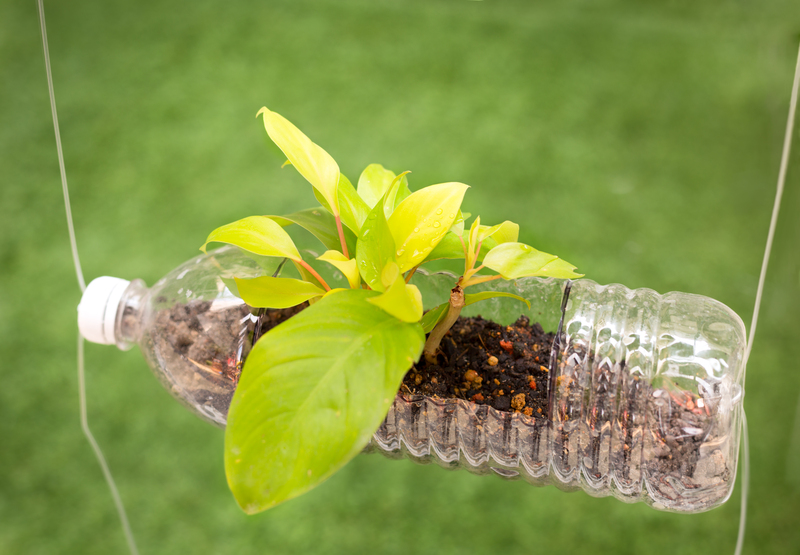Top Tips to Strengthen Recycling in Your Office Space
In the modern workplace, strengthening recycling practices in your office space is no longer just a trendy initiative--it's a necessity. Offices, whether big or small, generate substantial waste daily. Embracing high-impact recycling strategies doesn't only benefit the environment, it also enhances corporate reputation, reduces operational costs, and can even boost employee morale.
Are you eager to create positive change and transform your workspace into a greener, more sustainable environment? Discover the most effective tips to optimize your office recycling program, improve waste management, and cultivate lasting eco-friendly habits among your team.
Why Office Recycling Matters: The Environmental and Social Impact
Millions of tons of office waste, such as paper, plastic, and electronics, end up in landfills each year. This not only contributes to environmental degradation but also squanders valuable resources. Strengthening recycling in your office is a powerful way to combat these negative outcomes. Here's why prioritizing recycling programs in your workplace is essential:
- Reduces carbon footprint: Recycling minimizes emissions generated from waste incineration and landfill decomposition.
- Conserves resources: By reusing materials, we lower the need for new raw resources, which supports sustainable growth.
- Enhances corporate responsibility: Demonstrating environmental stewardship improves your brand image and can attract eco-conscious clients and talent.
- Encourages behavioral change: Constructive recycling habits often lead to broader sustainability initiatives, engaging employees beyond the office setting.

1. Conduct a Waste Audit to Understand Your Office's Current Situation
Before you can improve recycling in your office space, it's crucial to understand where you stand. A waste audit helps identify the types and quantities of waste produced, highlighting opportunities for improvement.
- Analyze waste streams: Categorize office waste (paper, plastics, metal, organic, e-waste, etc.).
- Spot contamination issues: Check for misplaced items in recycling bins that should have been disposed of differently.
- Set tangible benchmarks: Use audit data to set measurable recycling goals and track future progress.
Tips for Conducting an Effective Waste Audit
- Schedule audits quarterly or biannually.
- Engage a diverse team (facility, admin, and staff volunteers) for more accurate data collection.
- Document findings and share them with the entire organization to encourage collective problem-solving.
2. Make Recycling Easy and Accessible Throughout the Workplace
One of the best ways to enhance recycling rates in an office is to ensure recycling stations are user-friendly and widely accessible. The easier it is for employees to recycle, the more likely they are to participate.
- Strategically position recycling bins: Place bins in high-traffic areas (break rooms, printer stations, entrances, and near desks).
- Provide clear signage: Use color-coded bins and descriptive signs to eliminate confusion and minimize contamination.
- Ensure proper bin maintenance: Empty bins regularly to prevent overflow and keep them clean to encourage ongoing use.
Choosing the Right Bins and Signage
- Use different shapes or sizes for recycling versus landfill bins to create a visual cue.
- Add images and examples on bins to show what can and cannot be recycled.
- Label bins in multiple languages if your workforce is multilingual.
3. Educate and Engage Employees about Recycling Initiatives
Education is the cornerstone of any successful office recycling program. When employees understand the importance of recycling at work and feel involved, participation skyrockets.
- Host interactive workshops: Invite recycling experts or waste management companies to give practical demonstrations.
- Distribute guidelines: Compile recycling do's and don'ts into an easy-to-read handbook or digital format.
- Leverage internal communications: Use newsletters, emails, and posters to promote recycling updates and achievements.
Team Building with Eco-Friendly Initiatives
Organize fun, sustainability-oriented challenges, such as "Which department recycles the most?" or an office-wide "Plastic-Free Month" campaign. Small incentives and friendly competition help reinforce good recycling habits while building camaraderie.
4. Implement Clear Recycling Policies and Appoint Green Leaders
For office recycling programs to be effective, they need structure and accountability. Develop a clear policy that outlines expectations around waste sorting, use of single-use products, and reduction of overall waste generation.
- Draft an official recycling policy: Outline goals, rules, and resources available to staff.
- Assign "Green Champions": Designate eco-conscious employees as recycling point persons on each team or floor.
- Regularly review and refresh policies: Adapt policies to reflect new sustainability goals or changes in recycling infrastructure.
Sample Policy Elements
- Prohibition of non-recyclable single-use items (like certain plastics and Styrofoam).
- Mandatory double-sided printing policy to reduce paper waste.
- Requirements for proper sorting of food containers and office materials.
5. Reduce Waste at the Source with Smart Procurement Choices
The most effective office recycling strategy isn't just about recycling what's already waste--it's about reducing waste creation from the outset. Adopt sustainable purchasing habits:
- Prioritize suppliers with recyclable packaging: Favor companies that use minimal and easily recyclable materials.
- Switch to digital workflows: Minimize physical documents and utilize cloud storage, digital signatures, and e-communications wherever possible.
- Buy reusable or recycled office products: Opt for refillable pens, recycled paper, and compostable coffee pods.
- Avoid individually packaged items: Choose bulk or communal kitchen supplies to cut down on unnecessary packaging waste.
6. Recycle E-Waste Responsibly
Electronic waste is a growing concern in today's digital offices. Strengthen e-waste recycling by creating dedicated programs for outdated computers, printers, and other electronics.
- Schedule periodic e-waste drives: Collect items quarterly and partner with certified recyclers.
- Wipe data securely: Ensure all electronics are sanitized of sensitive data before recycling.
- Donate whenever possible: Old but functional electronics can benefit schools, charities, or community groups.
Tips to Minimize E-Waste in the First Place
- Invest in high-quality, long-lasting technology.
- Use modular electronic systems that allow for part replacement instead of full device disposal.
7. Start an Office Composting Program for Organics
Beyond paper and plastic, a significant portion of office waste comes from food scraps and coffee grounds. Recycling organics through composting can shrink your waste output and even generate rich compost for community gardens.
- Set up airtight compost bins in kitchens and common areas.
- Partner with local farms or city green programs for pick-up or drop-off.
- Hold info sessions to educate the team about what can (and cannot) be composted.
8. Monitor Progress and Celebrate Successes
Measuring results is vital for keeping your office recycling initiative on track. Regularly review performance metrics, seek feedback, and celebrate every win.
- Track recycling rates monthly or quarterly and compare them to your benchmarks.
- Conduct anonymous surveys to gauge employee satisfaction and identify barriers.
- Share progress in company meetings or internal channels, and recognize departments or individuals who excel.
Ideas for Recognition
- Feature a "Recycling Hero" of the month with a small reward.
- Host green-themed office socials when milestones are achieved.
- Create a sustainability wall or digital dashboard to showcase statistics and highlights.
9. Connect with Local Recycling Resources and Community Programs
Stay informed about recycling requirements for offices in your area, as rules can vary widely. Many municipalities offer free resources, updated recycling lists, or even in-person consultations.
- Attend local workshops or meetings for business recycling best practices.
- Join or sponsor community clean-up or zero waste programs.
- Consider a "green vendor" directory for local sustainable service providers.

10. Foster a Culture of Sustainability in Every Workplace Decision
The most enduring office sustainability and recycling programs are woven into the company culture. Encourage every staff member to think sustainably at work--from printing decisions to equipment purchases and daily habits.
- Embed eco-friendly values in onboarding and training materials.
- Solicit new sustainability ideas during meetings or through suggestion boxes.
- Lead by example: Encourage leadership to publicize their own green practices and learnings.
Conclusion: Building a Greener Future, One Office at a Time
Adopting these top tips to strengthen recycling in your office space can transform your workplace's environmental impact and inspire eco-conscious behavior far beyond your doors. From small daily changes, like using reusable mugs, to impactful policies and ongoing education, each step you take creates a ripple effect for sustainability.
Start with an honest assessment, educate and motivate your team, streamline your recycling processes, and watch your office become a leader in responsible resource management. Remember--every bit recycled is a win for your business, your community, and the planet.
Frequently Asked Questions: Strengthening Recycling in Office Spaces
- What are the most commonly missed items in office recycling?
Plastic film, coffee cups (with plastic linings), snack wrappers, and electronics are frequently overlooked in office recycling programs. - How can we motivate employees to participate?
Communication, clear signage, gamification, and visible recognition are proven methods for encouraging staff buy-in. - How often should our recycling progress be reviewed?
Monthly or quarterly reviews are ideal to ensure your program stays on track and continues to improve. - Should we compost in our office?
If your workspace generates significant food waste and composting services are available, it's an excellent step toward greater sustainability.
Ready to make your office more sustainable? Implement these expert office recycling tips today for a cleaner, greener tomorrow!